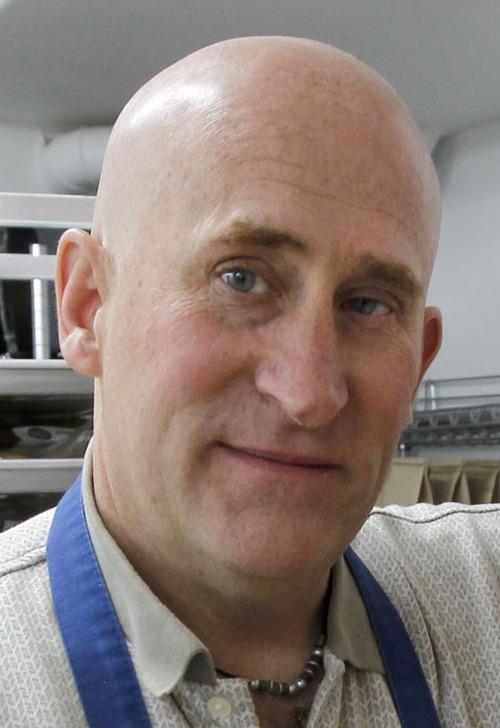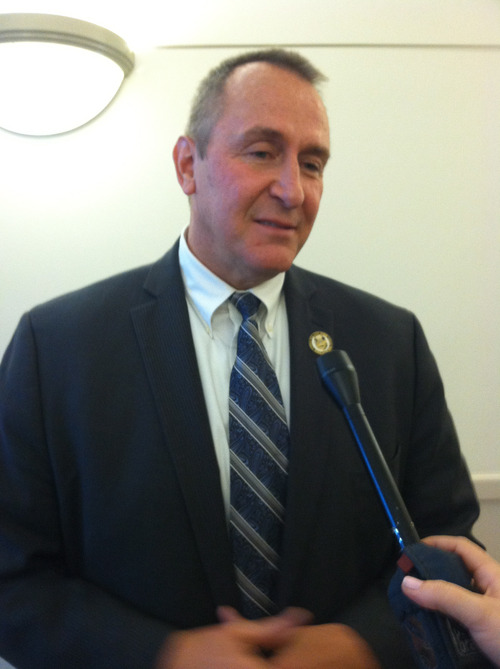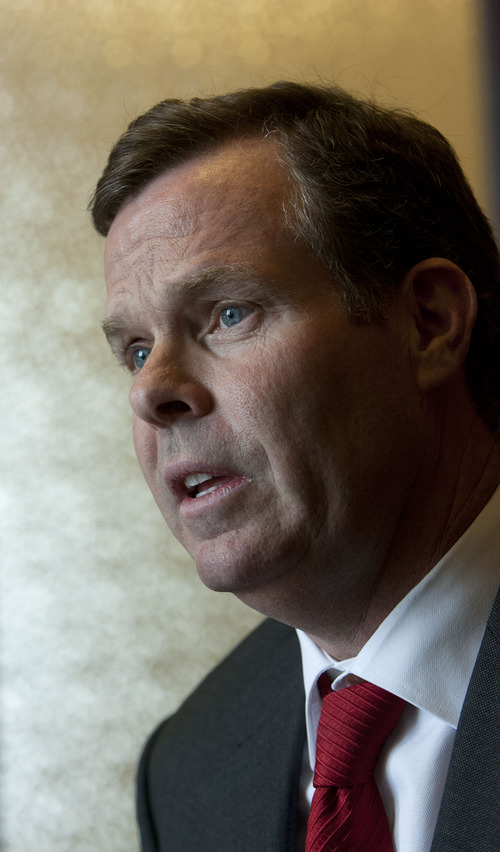This is an archived article that was published on sltrib.com in 2013, and information in the article may be outdated. It is provided only for personal research purposes and may not be reprinted.
Federal and state agents handling the investigation into alleged misconduct within the Utah attorney general's office have met with a close friend of former Attorney General Mark Shurtleff.
Meanwhile, on another investigative front, the state has begun the search for a special counsel to examine whether Shurtleff's successor, John Swallow, violated Utah election laws.
Tim Lawson, a self-described "fixer" who is seen as a central figure in issues surrounding Swallow and Shurtleff, said he was approached Friday at his home by FBI Special Agent John A. Isaacson and the Utah Department of Public Safety's Scott Nesbitt.
"I'm in my bib overalls, ready to go … do a little bit of gardening," Lawson said, "and I sat down and said, 'Guys, we need to have a little conversation.' "
It ended up being a very brief exchange indeed.
"They were here for just a couple minutes," Lawson recalled, "and I said, 'Guys, it was recommended that I get a lawyer … I'm not exactly sure why I need to do that, but I got a lawyer.' "
The agents, who told Lawson they were visiting him in the wake of recent news reports, left once Lawson referred them to his attorney.
Nesbitt's appearance is another sign of state involvement in the federal probe. Salt Lake County District Attorney Sim Gill and Davis County Attorney Troy Rawlings, piggybacking on the federal inquiry, are investigating whether Swallow and Shurtleff broke any state laws.
Lawson has been a key figure in allegations by Marc Sessions Jenson, who is doing time at the Utah State Prison on securities violations. Jenson says Shurtleff told him to hire Lawson when Jenson was under investigation by the state.
Lawson accompanied Shurtleff and Swallow on trips to Jenson's villa in Newport Beach, Calif., on Jenson's dime while Jenson was free, thanks to a plea deal struck with the attorney general's office.
Lawson also helped line up donors for Shurtleff while he was attorney general.
Meantime, the state has begun taking bids for a special counsel to investigate Swallow for potential election-law violations and "if so, to conduct an appropriate proceeding on behalf of the lieutenant governor or refer the matter to others for prosecution or further action."
The lawyer or firm will determine whether Swallow violated election law by failing to report his role in two businesses: P-Solutions and SSV.
Swallow was paid $23,500 through P-Solutions by the late Richard Rawle. Swallow said it was for consulting on a Nevada cement project, which Rawle corroborated in an affidavit before his death.
But the money came from funds Rawle received via St. George businessman Jeremy Johnson for what Swallow and Rawle said was a $250,000 lobbying deal aimed at helping Johnson with an investigation by the Federal Trade Commission.
Johnson has characterized the payouts as part of a $600,000 plan to bribe Senate Majority Leader Harry Reid, D-Nev. Swallow and Reid have denied those allegations. The Justice Department is investigating.
Months later, Swallow returned the $23,500 to Rawle and asked to be paid from a different account.
Swallow did not list P-Solutions on his financial disclosure, nor the payment from Rawle. After filing his initial disclosure, Swallow removed his name from the management of P-Solutions and submitted an amended disclosure but didn't list his wife's interest in the company.
The disclosure forms require candidates to report their business interests and sources of income over $5,000.
Swallow's attorneys have said he wasn't required to list the businesses or income because the proceeds are held in a trust for his children.
The liberal-leaning Alliance for a Better Utah filed a complaint with the lieutenant governor in March, alleging a dozen election-law violations — nine of which were dismissed — and arguing Swallow should be removed from office if he broke the statute. Swallow's attorneys insist he should only have to file an amended disclosure.
According to the state's bidding documents, the special counsel will investigate whether Swallow should have listed the two companies and the income, and whether he intentionally provided false information on the forms.
Bidders must have experience with Utah election law, estate planning and tax law. The contract, which could run for two years, also requires bidders to disclose any potential conflicts of interest, including campaign donations and how the conflicts would be alleviated.
Bidders are to submit an estimate of the cost of the investigation.
Maryann Martindale, the alliance's executive director, said she was pleased to see that the contract requires disclosure of potential conflicts but was concerned about the two-year time frame.
"We're hoping this doesn't mean it's going to progress slowly and it's only in anticipation of potential longer-term legal issues, like appeals," she said. "This has gone on for a really long time now, and it needs to be resolved."
Twitter: @RobertGehrke







